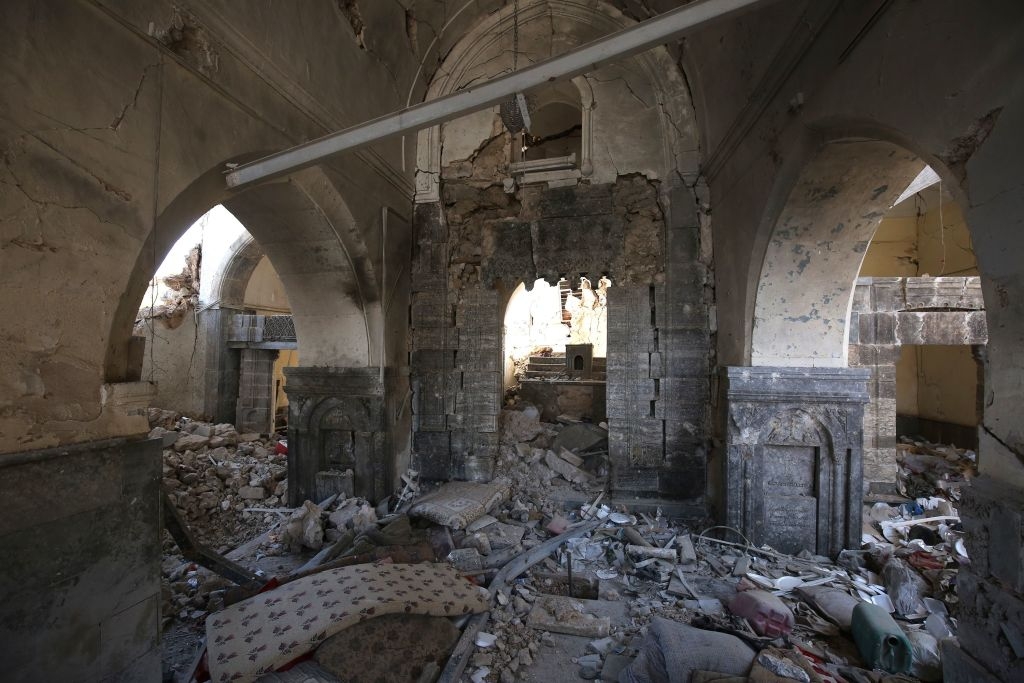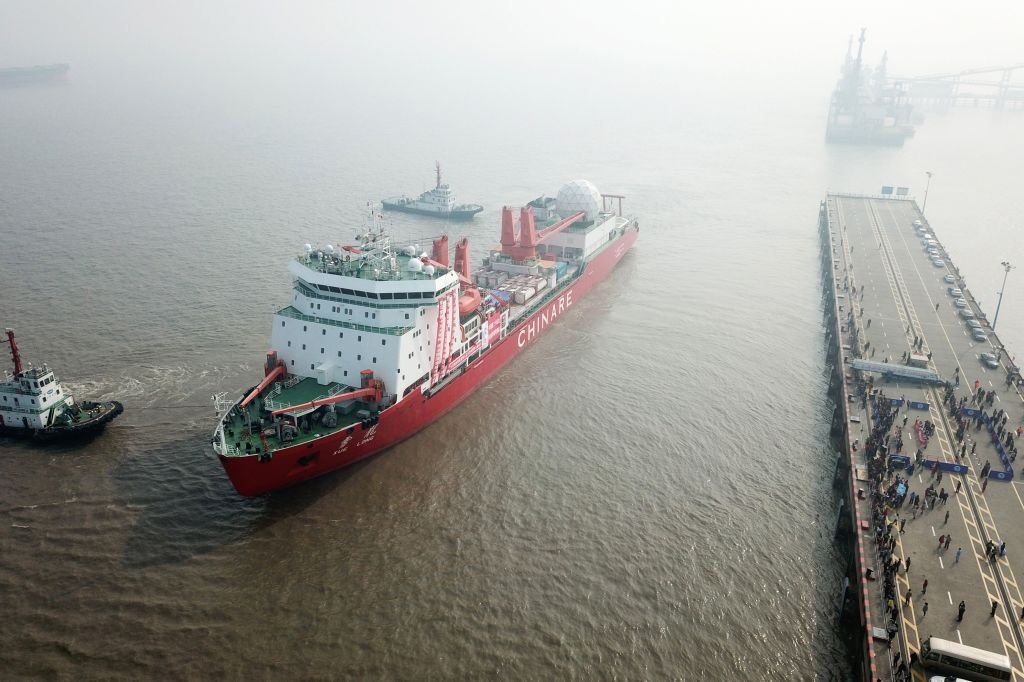In this mailing:
- Con Coughlin: Forcing US Troops from Iraq Will be a Victory for ISIS, Iran
- Lawrence A. Franklin: China: Beijing's Arctic Power Grab
- Omer Demir: Why Hamas Supports Turkey's Invasion of Northern Syria
by Con Coughlin • January 9, 2020 at 5:00 am
"They [surviving ISIS fighters] have better techniques, better tactics and a lot more money at their disposal. They are able to buy vehicles, weapons, food supplies and equipment. Technologically they're more savvy. It's more difficult to flush them out. So, they are like al-Qaeda on steroids." — Lahur Talabany, a top Kurdish counter-terrorism official, in an interview with the BBC.
Calling on America to withdraw its forces from Iraq could therefore prove to be utterly self-defeating for the Iraqi government... they will simply be placing themselves at the mercy of a new, and bolder, generation of Islamist fanatics.
A US withdrawal from Iraq would also suit Tehran, where Ayatollah Ali Khamenei has not only called for the withdrawal of all US troops from Iraq, but the entire Middle East. Not having the US to provide moral and military support to the Iraqi government would allow Iran to continue its meddling in Iraq's internal affairs, as well as consolidating its malign influence throughout the rest of the region.

Calling on America to withdraw its forces from Iraq could prove to be utterly self-defeating for the Iraqi government. The most likely consequence of a withdrawal will be the return of ISIS as a major terrorist force. Pictured: The remains of a church that was attacked by ISIS in Mosul, Iraq. (Photo by Ahmad Al-Rubaye/AFP via Getty Images)
The most likely consequence of any attempt by the Iraqi government to demand the removal of American forces will be the return of ISIS as a major terrorist force, as President Donald J. Trump singled out in his televised address January 8.
The issue of whether the estimated 5,200 US troops currently based in Iraq will be allowed to remain in the wake of the assassination of Islamic Revolutionary Guard Corps commander Qassem Soleimani has been raised following a nonbinding vote by the Iraqi parliament calling for the withdrawal of American forces.
President Trump immediately responded by threatening Iraq with sanctions and a bill for billions of dollars if Baghdad insisted on the withdrawal taking place, although questions remain about the legitimacy of the Iraqi parliament's demand.
by Lawrence A. Franklin • January 9, 2020 at 4:30 am
Unfortunately, the US is largely dependent upon China for these materials, which also lie beneath the huge ice masses of Greenland.... Beijing is proposing to build several airports, harbors, roads and railways in Greenland, which would facilitate the transport of rare earth materials -- once they are excavated -- to China.
China's drive for eventual primacy in the Arctic region also extends to the Danish-owned, self-governing network of the 18 Faroe Islands, located midway between Norway and Iceland in the North Atlantic Ocean.
Although China is a latecomer to great-power competition in the Arctic, its Arctic profile could rise quickly if Moscow pools its efforts with Beijing. The Russian Air Force has long had a separate branch for polar aviation, and Russia maintains an extensive nuclear- and diesel-powered fleet of icebreakers.
Also at risk under such a scenario would be the US military facility in Thule, Greenland, which serves as an early-warning node for a nuclear attack on the North American continent.

Two Chinese polar icebreaking research vessels, Xuelong and Xuelong II, are presently carrying out the regime's 36th scientific expedition in the waters off Antarctica, helping complete China's fifth Antarctic scientific station for the gathering of data and establishment of under-the-ice submarine deployments similar to those operated by Washington and Moscow. Pictured: The Xuelong sets off from Shanghai on November 8, 2017. (Photo by STR/AFP via Getty Images)
One important element of the $738 billion National Defense Authorization Act for the Fiscal Year 2020, which US President Donald Trump signed into law in mid-December, is the directive to examine and monitor "Chinese military activities in the Arctic, as well as Chinese foreign direct investment in the Arctic."
The administration in Washington is right to be concerned about China's increasing interest in the northern polar region. Two years ago, Beijing published a White Paper outlining its Arctic policy, which includes creating a "Polar Silk Road." If fully implemented, this policy will challenge the United States and Russia for primacy in the region, where beneath the glaciers lie vast quantities of coal and natural gas.
by Omer Demir • January 9, 2020 at 4:00 am
The American pullout from the area, which borders on Turkey, was evidently perceived by Erdoğan as a green light for an invasion for which he had been waiting for nearly a decade.
Hamas, like Turkey, not only seeks Israel's destruction, but also has close ties with the Erdoğan government.
Like its terrorist counterparts across the Middle East, many of which are funded by the Iranian regime, Hamas aims to annihilate Israel not only for being a Jewish state, but for sharing American values of freedom and democracy. In Hamas's eyes, the Kurds are an extension of that Western alliance.

Hamas's support for Turkey's aggression in northern Syria should come as no surprise. Hamas, like Turkey, not only seeks Israel's destruction, but also has close ties with the Erdoğan government. Pictured: Turkey's President Recep Tayyip Erdogan (then serving as prime minister) poses beside Hamas leaders Khaled Mashaal (center) and Ismail Haniyeh (left) during a meeting in Ankara, Turkey on June 18, 2013. (Image source: Turkish Prime Minister Press Office/Yasin Bulbul/AFP via Getty Images)
In mid-October, following US President Donald Trump's announcement of a withdrawal of American troops from northern Syria, Turkish President Recep Tayyip Erdoğan's military invaded the Kurdish-held area.
Ankara views the Kurds in northern Syria as PKK-affiliated terrorists who, for wanting freedom, are regarded as a serious threat to Turkish national security. Eliminating Kurdish autonomy has been a key priority for Erdoğan since the beginning of the Syrian civil war in 2011.
|
|
|
No comments:
Post a Comment